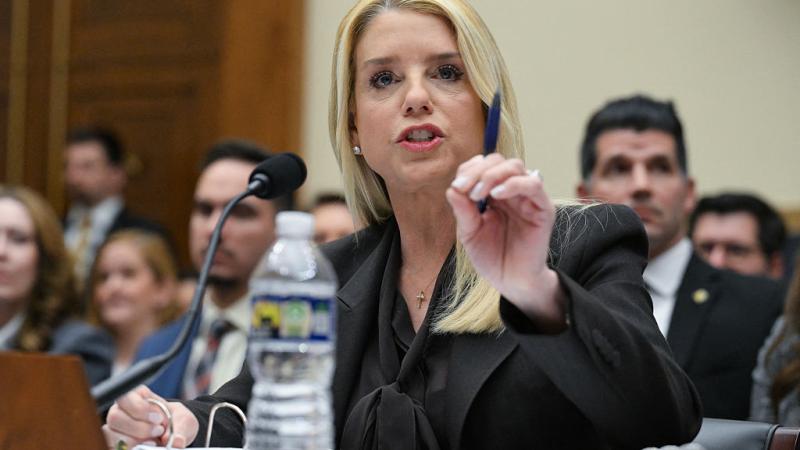Beware of 'Orwellian' bill banning TikTok, warns Ohio Rep. Warren Davidson
The RESTRICT Act quickly gained bipartisan support, but critics fear the bill is a Trojan horse that would give the executive branch sweeping new powers to monitor and punish internet activity posing ill-defined risks to national security or public saftey.
Ohio GOP Rep. Warren Davidson warns that a new bill to ban TikTok is seeded with provisions that leave Americans vulnerable to sweeping new intrusions of federal power on the internet.
Decrying the RESTRICT Act as "Orwellian in its scope" in an interview Wednesday on the John Solomon Reports podcast, Davidson said, "It basically says, 'Just give us the same kind of power the Chinese Communist Party has to spy on their citizens, and we'll keep you safe.'"
Sponsored by Senate Intelligence Committee Chairman Mark Warner (D-Va.), the bill was introduced last month and quickly gained wide bipartisan support amid rising rising fears that the popular, Chinese-owned video sharing platform poses threats to national security, user data privacy and teen mental health.
However, an emerging bipartisan coalition of civil libertarians on the right and the left warns the legislaton is a Trojan horse. In empowering the Commerce Department to crack down on TikTok, they fear, the bill would give the federal government sweeping new authority to surveil and punish — largely free of public scrutiny or accountability — digital communications or transactions posing vaguely defined "undue and and unacceptable risk" to national security or public saftey.
Kentucky Republican Sen. Rand Paul, for example, tweeted out an article headlined "Prepare for the Patriot Act for the internet."
"It gives the ability really with almost no due process whatsoever for somebody to be fined a million dollars and imprisoned for 20 years," Davidson said. "And that's if they get caught violating things like downloading software that the government doesn't approve of."
The RESTRICT Act would, among other things, criminalize the use of virtual private networks, or VPNs, relied on by millions of internet users to protect their data when browsing the internet.
Under the bill, "the Department of Commerce must identify, deter, disrupt, prevent, prohibit, investigate, and mitigate transactions involving ICT products and services (1) in which any foreign adversary (such as China) has any interest, and (2) that pose an undue or unacceptable risk to U.S. national security or the safety of U.S. persons."
"If it's digitized and electronic, the government can spy on it," Davidson argued. "Then really with no notice to you, the government collects and uses this information and doesn't even give you or somebody on your behalf the ability to use FOIA to find out exactly what they're doing. It is a domestic surveillance state bill."
As of now, there are 25 senators cosponsoring the bill — 13 Republicans, 11 Democrats and one independent caucusing with the Democrats. Senate cosponsors include Thom Tillis (R-N.C.), Chuck Grassley (R-Iowa), Lindsay Graham (R-S.C.), Richard Blumenthal (D-Conn.) and Tim Kaine (D-Va.).
Davidson said he is willing to give a pass to some senators who may have naively signed on to the bill without understanding its potential for abuse.
"It seemed like Lindsey Graham maybe didn't understand exactly what was in the bill, or how the bill worked," Davidson said, referring to a recent Fox News interview Graham did with Jesse Waters. "And so let's say there's some portion of those senators that say, 'Yeah I'm for banning TikTok,' and they didn't really dig into the bill, and they don't really understand it."
The real concern for Davidson is the senators who are pushing the bill because of its vast expansion of federal regulatory reach over the internet.
"There are people like Mark Warner, the bill's sponsor and the chairman of the Senate Intelligence Committee who's for it, and he drafted it because of the implications in the bill," he said. "And those are the really scary people."
















